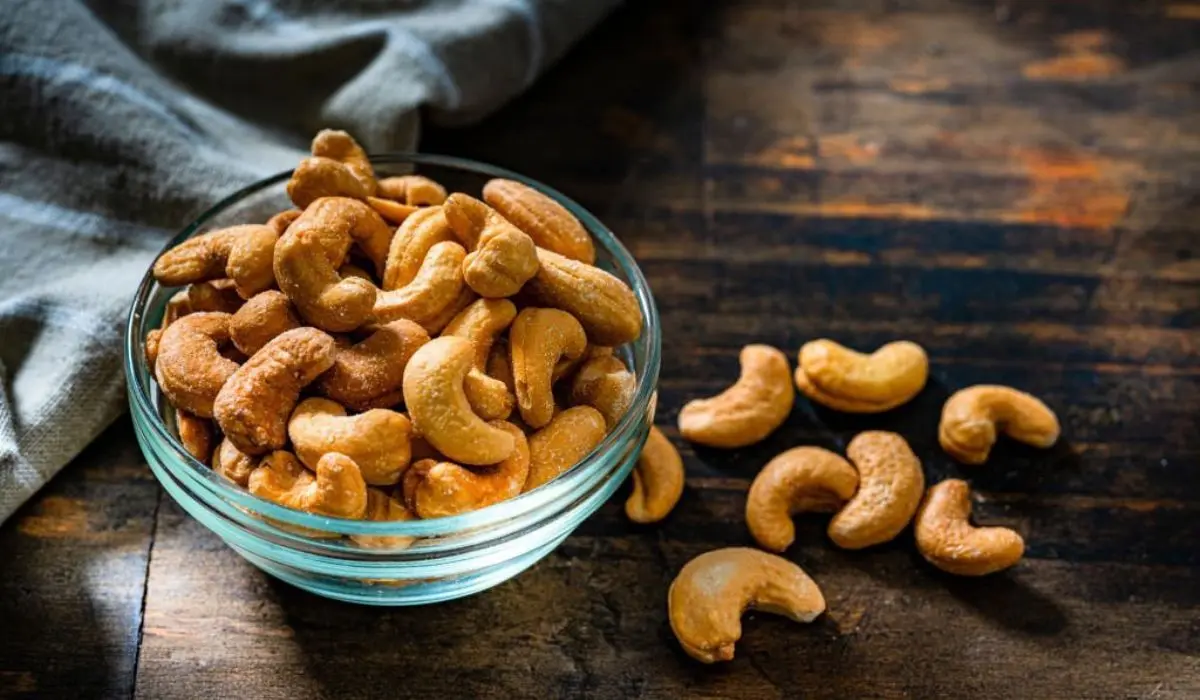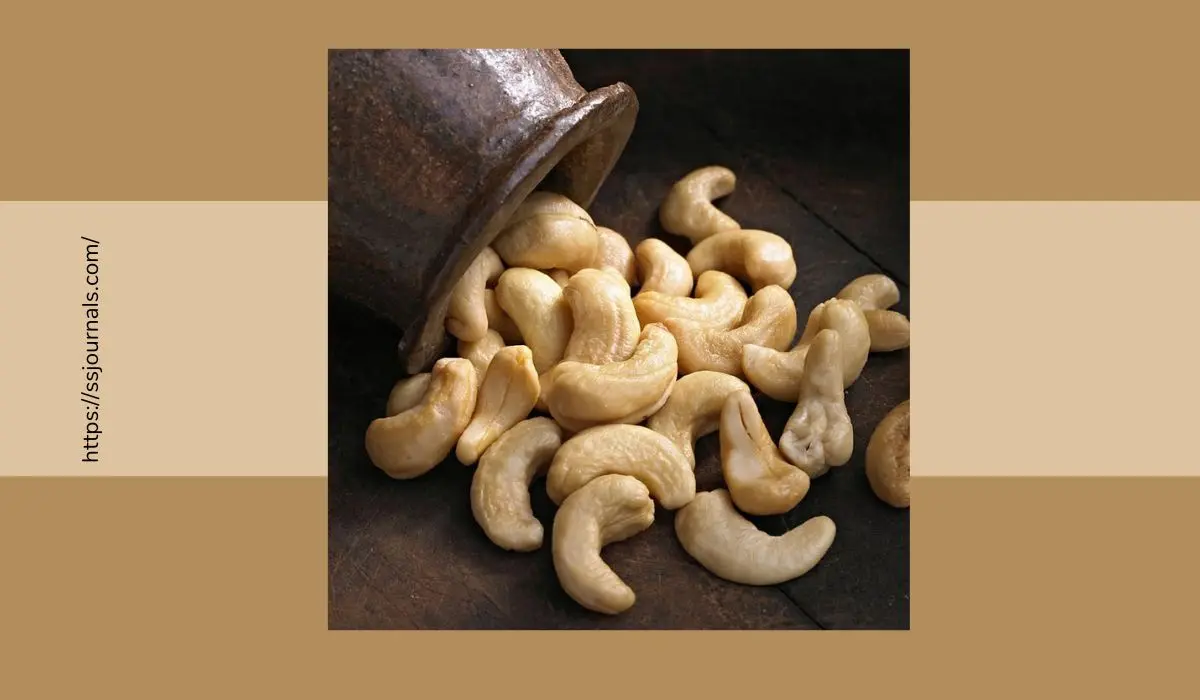Cashews are an incredibly versatile and delicious nut that can be enjoyed in a variety of ways. But did you know that these nutritious nuts also offer important digestive benefits? Cashews contain unique compounds that make them a prebiotic powerhouse for gut health.
In this article, we’ll explore the top ways that cashews support your gastrointestinal system, from promoting healthy gut flora to fighting inflammation. You’ll learn how exactly cashews benefit digestion and get creative ideas to enjoy more of this healing nut. Let’s dive in to the science-backed digestive perks of cashews!
An Overview Of Cashew Nutrition

Cashews are actually seeds that grow on the bottom of cashew apple fruit. Raw cashews have a soft, creamy texture with a sweet, nutty flavor. A one-ounce serving of cashews contains:
➜ 157 calories
➜ 5 grams protein
➜ 9 grams of healthy unsaturated fats
➜ 9% DV magnesium
➜ 11% DV phosphorus
➜ 7% DV zinc
➜ 5% DV iron
This nutrient profile makes cashews a stellar source of plant-based protein, anti-inflammatory fats, and key minerals that support the microbiome. Now let’s explore the top digestive benefits of cashews.
5 Ways Cashews Improve Digestion
Recent research reveals various mechanisms by which cashews support gastrointestinal functioning:
1. Prebiotic Fiber
Cashews contain unique indigestible sugars and polyphenols that feed beneficial gut bacteria.
2. Anti-Inflammatory Effects
The oleic acid in cashews reduces gut inflammation tied to many digestive issues.
3. Promote Regularity
The fiber speeds up intestinal transit, combating constipation.
4. Improve Mineral Absorption
Zinc, magnesium, and iron in cashews optimize the gut’s ability to absorb nutrients.
5. Combat H. Pylori
Compounds in cashews may help eradicate this problematic stomach bacteria.
Let’s analyze the science behind these digestive benefits in more detail.
Cashews Act As A Prebiotic
Cashews contain specialized carbohydrates and plant chemicals including:
– Galacto-oligosaccharides (GOS) – feed probiotic species
– Flavanols – polyphenols that nourish good gut bacteria
– Anacardic acids – block inflammatory responses
These compounds make cashews function as a prebiotic. Feeding your microbiome cashews’s unique sugars and nutrients helps optimize bacterial balance.
A healthy gut flora improves many aspects of digestion from immunity and regularity to reducing gut permeability and systemic inflammation. Cashews are an amazing natural prebiotic.
Related: Bad Gut Health Symptoms – Gut Check: Notice These Subtle Signs?
They Alleviate Inflammation In The Gut
Chronic inflammation is at the root of most gastrointestinal conditions like IBS, Crohn’s disease, ulcerative colitis, and even colon cancer.
The oleic acid in cashews displays potent anti-inflammatory activities in numerous studies. Reducing gut inflammation helps ease digestive symptoms like diarrhea, pain, and bleeding.
Plus the anacardic acids and antioxidants in cashews further calm overall inflammation. For an autoimmune gut condition, cashews can help dampen flare-ups.
Cashews Relieve Constipation
That prebiotic fiber in cashews not only feeds good bacteria but also adds bulk to stool and speeds intestinal transit.
Daily intake provides natural relief for chronic constipation. This also reduces bloating, cramping, and straining.
For occasional irregularity, cashews work far better than laxatives with no side effects.
They Enhance Mineral Absorption
Cashews provide a wealth of minerals like zinc, magnesium, phosphorus, and iron that are essential for countless enzymatic processes across the digestive system.
These help produce stomach acid, metabolize carbs and fat, generate mucus secretions, and transport waste. Supporting nutrient absorption reduces inflammation and conditions like leaky gut over time.
Tips For Reaping More Digestive Benefits
Follow these tips to get the most out of cashews for gut health:
– Enjoy cashews raw or dry roasted instead of heavily processed. This retains the most nutrients.
– Do not consume moldy cashews, as these contain potent toxins. Always inspect thoroughly.
– Soak and sprout cashews to reduce phytic acid and increase absorption of minerals.
– Chew well to release digestive enzymes.
– Limit portions to a 1-2 ounce handful for optimal digestion.
– Drink plenty of water for better motility and flushing toxins.
– Combine cashews with other prebiotics like onions, garlic, bananas, and apple cider vinegar.
FAQs
Let’s answer some commonly asked questions about the gastrointestinal benefits of cashews:
Yes, the prebiotic fiber feeds good bacteria and their anti-inflammatory effects can reduce IBS flare-ups.
They can initially as gut bacteria adjust. Soak cashews to make them more digestible.
Yes, the fiber and nutrients in cashews actually support intestinal health to prevent diverticulitis flare-ups.
No, they help relieve constipation thanks to insoluble fiber which adds bulk to stool and increases motility through the gut.
Yes, they enhance good bacteria, reduce inflammation, and improve nutrient absorption to heal intestinal permeability.
Conclusion
With amazing prebiotic capabilities, anti-inflammatory phenols, and key minerals, cashews offer multifaceted digestive benefits. They supply essential compounds for supporting gastrointestinal health from gut lining to nutrient absorption.
Incorporating more cashews can rebalance your microbiome, calm inflammatory conditions, relieve constipation, and enhance mineral status. Reap these digestive rewards by enjoying hydrating cashew milk, creamy nut cheeses, rich sauces, and savory roasted cashews. Let cashews bring their amazing gut benefits to your plate.
Also Check: How The Digestion Of Protein Happens? Understand The Enzymatic Absorption

